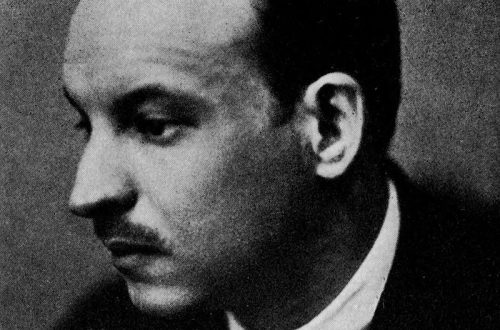
Stephanie d’Oustrac (Stéphanie d’Oustrac) |
Stephanie d’Oustrac

As a child, Stephanie d’Ustrac, grandniece of Francis Poulenc and great-grandniece of Jacques de Laprelle (Prix de Rome laureate among composers), secretly sang “for herself”. An important role in her professional development was played by the years spent in the children’s choir Maîtrise de Bretagne under the direction of Michel Noel. At first she was attracted to the theater, but after hearing Teresa Berganza at a concert, she decided to become an opera singer.
After graduating from her bachelor’s degree, she left her native Wren and entered the Lyon Conservatory. Even before she received her first prize in the competition, she sang Medea in Lully’s Theseus at the European Academy of Baroque Music in Ambroney (France) at the invitation of William Christie. The meeting between the singer and the conductor became fateful – soon Christy invited Stephanie to sing the title role in Lully’s Psyche. Early in her career, Stephanie focused on baroque music, and after being “discovered” by Christie, she worked with conductors such as J.-C. Malguar, G. Garrido and E. Nike. At the same time, the singer performed the roles of young protagonists and drag queens in the works of the traditional operatic repertoire. Excellent diction quickly secured her place among the leading performers of the French repertoire. The success that the roles of Medea and Armida brought to the singer logically led the singer to the role of Carmen, which she first performed at the Lille Opera House in May 2010, to the delight of critics and audiences. At the same time, her performance of “The Human Voice” (Roymond Abbey, Toulouse) and “Lady of Monte Carlo” received the approval of Poulenc’s admirers.
In addition to her voice, she pays great attention to the acting component of her profession, which allows her to perform a variety of female roles: a young girl entering her prime (Zerlina, Arzhi, Psyche, Mercedes, Calliroy, Pericola, Beautiful Elena), a deceived and rejected lover (Medea, Armida, Dido, Phaedra, Octavia, Ceres, Erenice, She), the femme fatale (Carmen) and travesty (Niklaus, Sextus, Ruggiero, Lazuli, Cherubino, Annius, Orestes, Ascanius).
A diverse repertoire allowed her to regularly collaborate with such prominent directors as L. Pelli, R. Carsen, J. Deschamps, J.-M. Villegier, J. Kokkos, M. Clément, V. Wittoz, D. McVicar, J.-F. Sivadier, and with such choreographers as Montalvo and Hervier and C. Rizzo. Stephanie has worked with distinguished conductors including M. Minkowski, J. E. Gardiner, M. V. Chun, A. Curtis, J. Lopez-Cobos, A. Altinoglu, R. Jacob, F. Biondi, C. Schnitzler, J. Grazioli, J.-I. Osson, D. Nelson and J.-K. Casadesus.
She has performed in theaters all over France, including the Opéra Garnier, Opéra Bastille, Opéra Comic, Chatelet Theatre, Chance Elise Theatre, Royal Opera of Versailles, Rennes, Nancy, Lille, Tours, Marseille, Montpellier, Caen, Lyon , Bordeaux, Toulouse and Avignon, as well as beyond its borders – in Baden-Baden, Luxembourg, Geneva, Lausanne, Madrid (Zarzuela Theatre), London (Barbicane), Tokyo (Bunkamura), New York (Lincoln Center), Shanghai opera, etc.
Stephanie participates in music festivals – in Aix-en-Provence, Saint-Denis, Radio France. Her performance as Sextus (“Julius Caesar”) at the Glyndebourne Festival in 2009 was a huge success. He regularly performs with such ensembles as Amaryllis, Il Seminario Musicale, Le Paladin, La Bergamasque and La Arpeggatta. She also gives solo concerts – since 1994, mainly with pianist Pascal Jourdain. Laureate of the Pierre Bernac Prize (1999), Radio Francophone (2000), Victoire de la Music (2002). Her recording of a disc of Haydn’s music was awarded Gramophone magazine’s Editor’s Choice Award in 2010.
This season, the singer performs with the Amaryllis ensemble, sings Carmen in Cana, The Death of Cleopatra with the Age of Enlightenment orchestra in London, participates in productions of Poulenc-Cocteau in Besançon and at the Théâtre de l’Athenay in Paris, “La Belle Helena” in Strasbourg, and also performs the parts of Mother Mary in the “Dialogues of the Carmelites” in Avignon, Zibella (in Lully’s “Atis”) at the Opéra Comic and Sextus (in Mozart’s “Mercy of Titus”) at the Opera Garnier.
© Art-Brand Press Service





